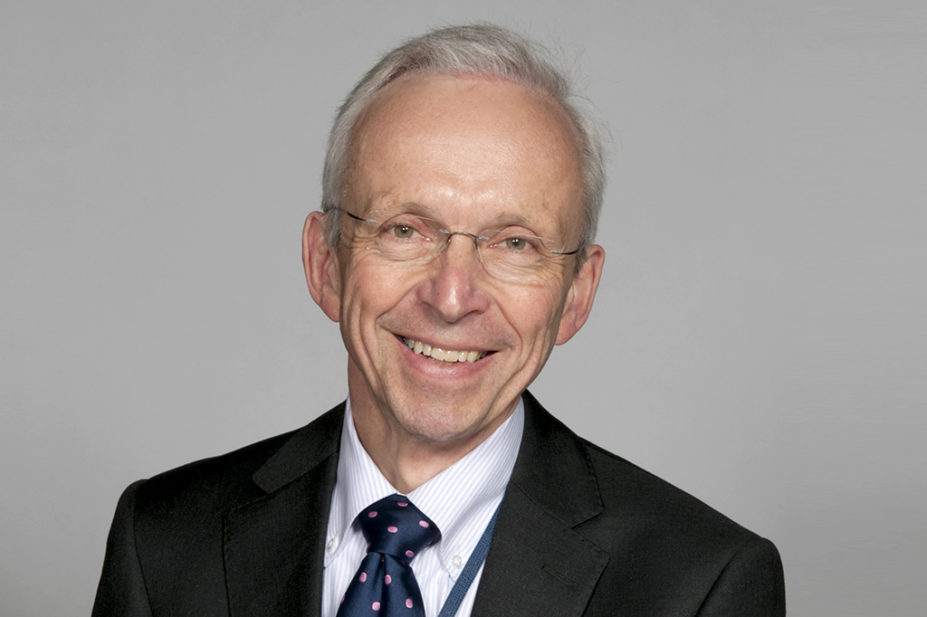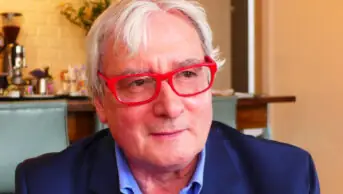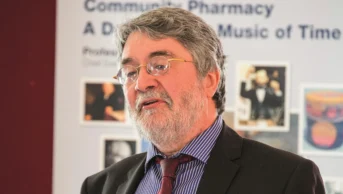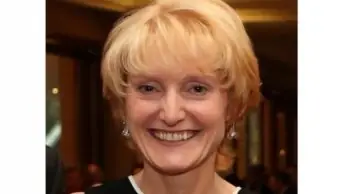
Peter Kopelman, a professor of medicine, with a distinguished career as a clinician and academic, and a “longstanding friend” of pharmacy, has died aged 70 years.
Kopelman was a medical doctor by training and later went on to become principal of the institution he attended, St George’s Hospital Medical School, from 2008–2015. In 2017, the school honoured him with an honorary ‘Doctor of Science’ degree.
From 2001–2006, Kopelman held the role of vice-principal at Queen Mary University of London; during that same period, he was also deputy warden of Barts and The London School of Medicine and Dentistry. He went on to take up the post of dean of the Faculty of Health at the University of East Anglia between 2006 and 2008.
His medical interests focused on diabetes care, nutrition and obesity. From 2005–2008, Kopelman was science adviser to the UK government’s Office of Science and Innovations foresight obesity project. He went on to sit on the then Department of Health’s (DH’s) expert panel on obesity, between 2008 and 2010, and between 2001 and 2010, was a member of the DH and Food Standards Agency’s Scientific Advisory Committee on nutrition.
At the time of his death, he was a member of the UK government’s review body on doctors’ and dentists’ remuneration.
Kopelman had a strong sense of kinship with the pharmacy sector. His association with the Royal Pharmaceutical Society (RPS) extends back to 2013, when he chaired the Faculty board, which was set up to help pharmacists advance their careers through continuing professional development. In February 2018, the Faculty board became the Faculty and Education Board (FEB) before, in December 2018, it was dissolved and became the Education and Standards Committee, again chaired by Kopelman. He stood down from the role at the end of 2020.
“Peter’s personal contribution to advancing our own leadership role in pharmacy education was significant, and part of his legacy is the clarity we now have about the role RPS needs to play in Foundation and post-registration education and development,” said Paul Bennett, chief executive of the RPS, adding that Kopelman was “a great advocate for pharmacy”.
In summer 2018, Kopelman became chair of the RPS’s Education Governance Oversight Board: a newly-formed body created to oversee pharmacy postgraduate education and training. The board includes the UK’s four chief pharmaceutical officers, as well as representatives from the RPS, General Pharmaceutical Council, NHS Education and Training, universities and employers.
Duncan Rudkin, chief executive of the GPhC, recalled Kopelman as someone who was “kind as well as wise”. He added: “He was adept at striking the right balance between challenge and support. His encouragement and guidance meant a huge amount to me personally. Future generations of pharmacy professionals — and their patients — will benefit from his vision and leadership.”
Gail Fleming, director for education and professional development at the RPS, said that Kopelman “was a great supporter of the pharmacy profession”.
“Even when he was receiving treatment for his illness, Peter continued to advocate for the profession and volunteer his time to progress pharmacy education. His dedication and passion were exemplary, and his passing is a huge loss.”
Claire Anderson, president of the RPS, recalled that “it was always a pleasure to be in a meeting where Peter was present or chairing“, adding that “his cross-professional approach is a lesson for us all in putting patients at the heart of healthcare”.
A joint statement from the four chief pharmaceutical officers of the UK — Andrew Evans, Cathy Harrison, Keith Ridge and Professor Alison Strath — said that Kopelman had been “instrumental in the transformation of pharmacy professional education and training”.
“With Peter’s help we have also been making good progress in reforming the approach to post-registration training to underpin both safe clinical practice and rewarding careers. Peter’s educational expertise and authority, combined with his ability to secure collaboration across many stakeholders, has been key.
“Peter will be very sadly missed by many of us and deserves the highest recognition and honour for his work.”
You may also be interested in

Bill Scott OBE (1949–2025)

David Taylor (1946–2025)
